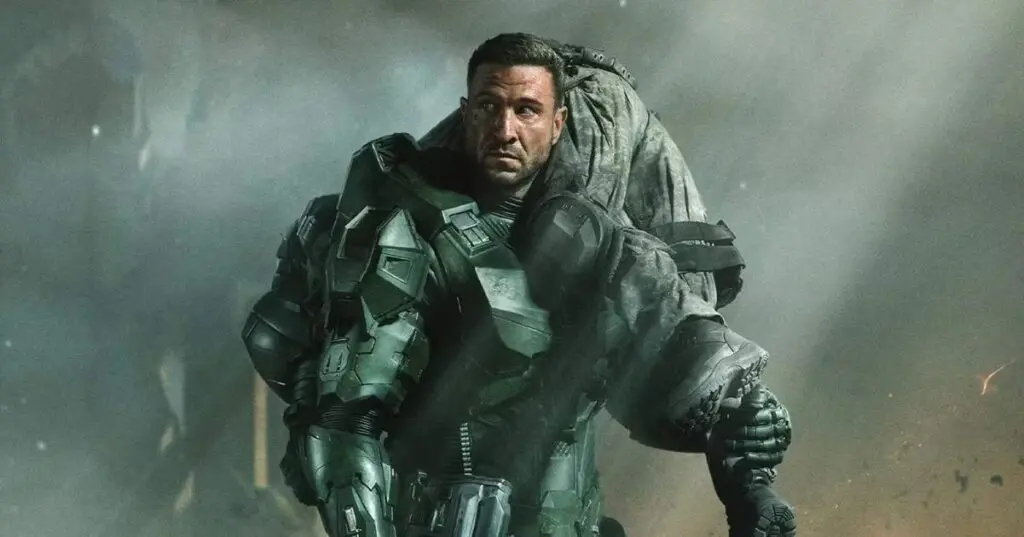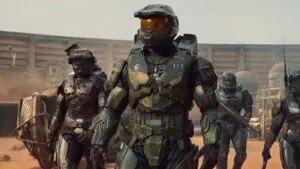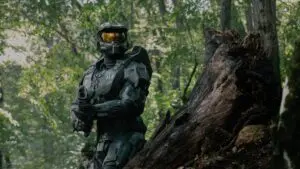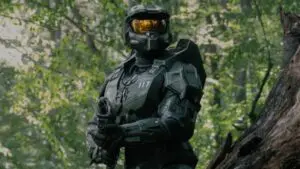Summary
While it retains some of the disliked elements from the first season, Halo Season 2 is a vast improvement over its predecessor. Showrunner David Wiener dives head-first into a fan-favorite story with care, and the new cast members are fantastic. While the action is still somewhat limited early on, it is shot frenetically and with pace.
As a fan of the games and someone who’s aware of the wider lore, the first season of Halo was a huge disappointment. So the prospect of Season 2 didn’t seem all that enticing. But, the change in showrunner to David Wiener and the reveal that there would be a focus on the Fall of Reach, one of the best stories in Halo lore, got me excited. Having seen the first four episodes out of eight, that excitement is met overall.
For those unaware, the Fall of Reach is the story of how the Covenant destroyed the planet Reach, a highly important human settlement home to not only millions of people but also the United Nations Space Command’s (UNSC) military-industrial complex. Few survived the destruction, and it put the UNSC on death’s door. It’s taken from two main places, the 2001 book Halo: The Fall of Reach by Eric Nylund and the 2010 video game Halo: Reach. It’s a bold story to tackle, and a stark (but welcome) change when set against season one’s ignorance of prior lore.
The show takes liberties with both accounts, instead choosing to tell its own version of how humanity’s fortress world fell. It’s having to do this while working in some of the constraints of Season 1, though it reboots some aspects, especially if they don’t fit the core narrative. This is the right choice, as it gets to act as a do-over for some of the controversial parts, and resets momentum in Paramount’s favor.
Pablo Schreiber returns as the stoic Master Chief aka John 117, and keeps the controversial decision to remove his armour. This is not just maintained but is somewhat doubled down on, which continues to be disappointing. It doesn’t ruin the experience, but when there’s a helmet and armor that’s as iconic as Chief’s, it’s distracting when it’s not worn. The removal of the iconic armor is mirrored in Chief’s and Cortana’s relationship. Paramount has made their Chief distinct from how fans know him from the games, which continues to detract from the overall show. They don’t know what to do with their protagonist. It’s not a dealbreaker, though it’s less than ideal.
But while Chief continues to be a hard character for Paramount to get right, they succeed in making the other Spartans interesting, particularly Natasha Culzac’s Riz-028 and Kate Kennedy’s Kai-125. They both go on interesting journeys which could conclude in some cool places. Yerin Ha’s Kwan has her storyline merged with Bokeem Woodbine’s Soren-066 and his family, which still has the show drag away from the far more interesting conflict on Reach, but it’s less of a bugbear when compared to Season 1.
The two newcomers are Joseph Morgan’s James Ackerson, a high-ranking member of the Office of Naval Intelligence (ONI), a CIA-like unit within the UNSC, and Cristina Rodlo’s Corporal Talia Perez. Both are great additions to the show, with Morgan’s Ackerson being a slimy, sneaky, and easily hateable man with some unexpected nuance. He loves to play politics, and his presence sees Chief have to fight enemies at home as well as on the battlefield. Morgan plays him with quiet menace, the audience will always perk up to listen to him. Corporal Perez gives a human face to the rest of the marines, who are in awe of the hulking Spartans and terrified of the threat that’s present. Their characters both fit the overall darker tone the show is going for, making them a perfect fit to introduce now.
That gritter tone is the highlight of the early episodes. There’s a weight to what’s happening, an understanding that the Covenant is a superior force to humanity. This hangs over a lot of what happens, and it helps to drive the season forward. It’s much better than the more generic action tone and feel Season 1 had. It gives Season 2 its own identity.
Talking of the action, it’s evident right from the first moment there’s been an increase in the show’s budget, with bigger set pieces. But, just like in Season 1, there are moments when the show hangs back unnecessarily, and these setpiece moments are still stretched between long series of dialogue. These scenes are much more compelling than the talky bits of the first season on the whole, so at least the audience won’t fall asleep.
Halo Season 2’s heavier tone is a key win
Something that fans will be able to notice right from the first scene is that the tone is heavier. The war with the Covenant is put into much sharper focus along with the devastating toll it has taken on all of humanity, and there are moments where this hits home hard. And this is something vital for Paramount to have gotten right because the Fall of Reach is a tragic tale. It wouldn’t have felt right any other way. It’s so far struck the right balance of not being hopelessly depressing either, but time will tell whether that holds.
It’s a huge shift from Season 1, and it’s all the better for it. While there are still some parts that are stuck (the character of Chief and an overreliance on talking), Halo Season 2 is a departure for the better from the prior season. It’s not perfect, but it won’t disappoint fans of the franchise.
RELATED:




